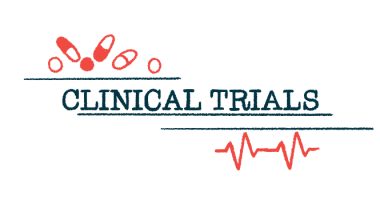Day-to-day living with hereditary angioedema
Last updated July 15, 2024, by Susie Strachan

Living with hereditary angioedema (HAE) has its challenges, but learning more about the condition and ways to manage may help make daily life easier.
HAE is a rare disease that can cause recurring episodes of severe swelling, often without warning. The swellings can be painful and disfiguring, and may last for hours or many days.
But that doesn’t mean the condition has to take over your life or stop you from doing the things you want to do.
Taking steps such as creating an HAE treatment plan, figuring out your HAE triggers, following your medication schedule, and boosting your mental health can help you feel more in control of your day-to-day life.
Managing HAE triggers
Known triggers for HAE attacks include stress, minor injuries, and illnesses. Still, attacks can happen without an apparent trigger.
Recognizing symptoms and warning signs
When you have a sense of what, for you, sets off an HAE attack, you can try to avoid triggers.
Possible triggers include:
- allergens
- hormonal fluctuations, such as during puberty, menstruation, and menopause
- hormonal changes during pregnancy and breastfeeding
- repetitive physical activities
- dental surgery
- stress.
Talk with your HAE healthcare team about possible triggers, as well as which lifestyle changes and medications can help prevent attacks or better manage them.
Your doctor or allergist can help you track your HAE symptoms, review your medical history, and do tests to pinpoint what might be causing your attacks.
Other symptoms to recognize include:
- respiratory symptoms caused by swelling of the tongue, throat, or neck, which can obstruct the airways and make it harder to breathe
- gastrointestinal symptoms, such as abdominal pain, nausea, and vomiting
- an HAE skin rash, which can be confused with hives, itchiness, and reddened skin caused by conditions other than angioedema.
You also may experience other nonswelling symptoms, such as fatigue, itchiness, flu-like symptoms, bruises, and lack of appetite before, during, or after a swelling episode.
Familiarizing yourself with an attack’s early warning signs (known as prodromes) — such as pain or muscle aches, feelings of tightness or prickling, or a non-itchy skin rash — can help you be more proactive in advance. This might include taking preventive medications, reducing stress, and talking with your healthcare team about managing your attacks.
Keeping a journal describing your prodromal signs and swelling symptoms is one way to identify patterns. Write down information about:
- the severity of the attack
- possible triggers
- treatment method
- response to treatment.
Following a treatment plan
Once you have a better understanding of your personal HAE triggers, you can try to minimize the risk of an attack.
For example, daily management of your HAE symptoms might involve sticking to your medication schedule by setting reminders on your phone, using a pill organizer, or trying other strategies.
If certain foods or medications seem to be triggers, ask your doctor about alternatives. It’s possible to have reactions to your HAE medications or other drugs, such as contraceptives, antibiotics, ibuprofen, and aspirin. Your healthcare provider can suggest other medications or recommend dietary changes to avoid trigger foods.
Additionally, your doctor might refer you to a dietitian to create an eating plan or to an allergist for further testing and guidance.
To ensure your treatment plan is working:
- schedule regular checkups with your healthcare provider to discuss concerns or new symptoms
- know how each angioedema medication works, when to take it, and any potential side effects
- tell your doctor about any challenges with symptoms or sticking to medications.
Stress management
Emotional or physical stress can trigger HAE attacks.
Feeling like you have some control over your condition may lessen anxiety related to HAE. Stress management can help you feel calmer during a swelling attack so you can administer your medications quickly or seek medical assistance if required.
Try coping strategies to help you relax such as:
- meditation
- yoga
- deep breathing exercises
- hobbies or activities you find enjoyable.
Hormonal changes
Changes in hormone levels also can trigger HAE attacks. Puberty, menstruation, menopause, pregnancy, and breastfeeding can play a role in having more frequent attacks.
Birth control pills, which contain artificial female hormones, also can trigger attacks.
Talk with your healthcare providers, including a gynecologist, about identifying patterns and anticipating attacks related to hormonal fluctuations.
Your doctor can also:
- discuss treatment adjustments before and during likely times for hormonal changes
- discuss when to seek immediate medical assistance
- have a plan in place for preventive measures and managing acute attacks during higher risk times, such as menstruation or pregnancy.
Medications for HAE
There are various medications for HAE, and their use depends on your specific needs. Some medications help prevent attacks, while others are for treating symptoms during an attack.
Each medication type has specific administration protocols, potential side effects, and effectiveness based on your response and the underlying cause of your HAE type.
Talk to your healthcare provider about how the following treatments may help:
- on-demand treatments to reduce swelling during an attack
- preventive medications (prophylactics) to stop attacks from happening
- short-term prophylactics taken before a known trigger, such as dental surgery
- over-the-counter medications, such as painkillers, for relief during an attack.
Staying connected
To avoid bottling up your feelings, stay connected with others for reassurance and support. Educating your friends and family about HAE is an important part of this process.
Building a support system
By building a network of understanding and supportive people, you create a safe space to share your experiences and challenges. Talking about HAE can help you take ownership of your story, giving you control over how your condition is perceived and managed.
Some people who can be part of your support network include the following:
- Your primary doctor, HAE specialist, allergist, and other healthcare professionals can provide medical advice, treatment, and support.
- Family members and friends who understand your condition can offer emotional support and help during an attack.
- Work colleagues or supervisors who are aware of your condition can provide accommodations or assistance during work-related challenges.
- Teachers, nurses, and coaches can help with managing HAE in school settings.
Educating friends and family
When your family and friends have a better understanding of what angioedema is and how it affects you, they can be more empathetic about what living with HAE is like, as well as help you during flare-ups.
Considering sharing with them:
- information about angioedema attacks in general, and how these may be caused by allergic reactions, certain medications, and genetic conditions like HAE
- your triggers and symptoms, so they can recognize when you’re having a swelling attack
- your treatment plan, including preventive medications and emergency treatments, where you keep them, and how to administer.
If they seem interested in learning more, let them know about reputable websites, such as the U.S. Hereditary Angioedema Association (HAEA) and the HAEi, the international umbrella organization for the world’s HAE patient groups.
Angioedema News is also a good source of health information, treatment news, and personal experiences about living with HAE.
Looking after your mental health
Becoming more emotionally resilient can help you cope with the challenges of living with HAE.
Having a chronic illness like HAE can lead to feelings of sadness or affect your self-esteem. It also can affect your relationships as you try to avoid situations that may involve triggers, have frequent medical appointments, and need to stay home during recovery periods.
Acknowledging you are struggling is a first step toward addressing mental health issues.
Support groups
Support groups — whether online or in person — connect you with others who know what you are experiencing. You may get tips on how to manage living with the disease and start to feel more empowered.
It may also inspire you to want to work in advocacy to support the health of others with angioedema by raising awareness.
Counseling and therapy
Counselors and therapists can teach you coping strategies for dealing with the emotional struggles of living with a chronic disease.
They may use counseling techniques such as cognitive-behavioral therapy and mindfulness and stress reduction so you can:
- recognize thoughts that contribute to stress or anxiety about HAE
- develop healthier ways of thinking and coping
- learn mindfulness meditation and yoga to reduce stress
- accept the uncertainty of your condition and focus on the positives of your life
- help family and friends better understand and support you.
Angioedema News is strictly a news and information website about the disease. It does not provide medical advice, diagnosis or treatment. This content is not intended to be a substitute for professional medical advice, diagnosis, or treatment. Always seek the advice of your physician or other qualified health provider with any questions you may have regarding a medical condition. Never disregard professional medical advice or delay in seeking it because of something you have read on this website.
Recent Posts
- Voices for change in a village of rare disease advocates, part 3
- HAE patients mostly attack-free after gene-editing therapy: Data
- Navenibart continues to reduce HAE attacks in long-term trial
- Adjusting eating habits to live better with HAE, other diagnoses
- Deucrictibant benefits maintained as treatment for HAE: Trial data
Related articles





